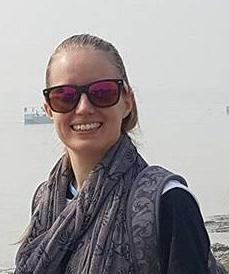Visiting Researcher Stephanie de Buhr,
MSc Student at University of Bremen
Arriving in Dhaka can be overwhelming. The prospect of doing my MSc field research is already a big task, but add a new culture, language, sounds and smells and you’ve got a pretty good idea just how immense my initial shock was. Luckily, I had the support of the Centre for Sustainable Development to help me find my feet in my new surroundings. The CSD not only provided a warm welcome, with friendly faces and even some lovely exchanges on people’s experiences in Germany, but also offered fantastic logistical support. Unfortunately my research was not based out of Dhaka, so I could not use the desk and internet access provided for very long, however I read some of the literature published by CSD and it was superb to kick start the first stage of my research. With my co-supervisor from CSD (Dr. Samiya Selim), I attended a Gobeshona meeting where I was able to network with academics and NGOs working in the field of climate change adapted livelihoods. This meeting was a great first contact and I am thankful for CSD for the exposure.
The aim of my field research was to look at different approaches used by NGOs to transform livelihoods in coastal Bangladesh. The people living in the coastal regions of Bangladesh face several problems; ranging from increased cyclone frequency and intensity to salinity intrusion, riverbank erosion and lack of alternative income sources. The NGO sector has played a big role in disaster relief and livelihood support through monetary and technical means. Understanding different approaches, and looking at projects that have finished in the last 10 years, will hopefully enable me to identify strong and weak points in generating a self-sustaining process. Self-sustaining processes are in itself an aspect of sustainability because it implies that the people involved in the project can carry out independent work beyond the project’s timeframe, and possibly even, the region. The knowledge of what may lead to a self-sustaining process can then be used to aid effectiveness and implementation of future projects and to establish project sustainability.
I hope to be the first of many students from University of Bremen who will come to Bangladesh and collaborate with CSD to continue the outstanding work and share in their passion to help combat the growing need for climate adaptive solutions.

